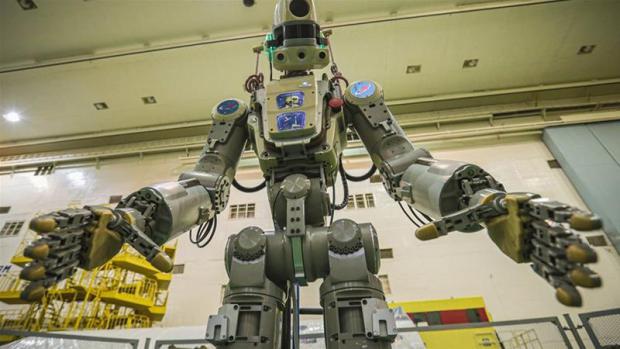
Breaking News
 Palantir kills people? But Who's Really Pushing the Buttons?
Palantir kills people? But Who's Really Pushing the Buttons?
 'Big Short' investor Michael Burry sounds alarm on AI bubble that's 'too big to save
'Big Short' investor Michael Burry sounds alarm on AI bubble that's 'too big to save
 2026-01-21 -- Ernest Hancock interviews Professor James Corbett (Corbett Report)
2026-01-21 -- Ernest Hancock interviews Professor James Corbett (Corbett Report)
 Joe rogan reacts to the Godfather of Ai Geoffrey Hinton talk of his creation
Joe rogan reacts to the Godfather of Ai Geoffrey Hinton talk of his creation
Top Tech News
 The day of the tactical laser weapon arrives
The day of the tactical laser weapon arrives
 'ELITE': The Palantir App ICE Uses to Find Neighborhoods to Raid
'ELITE': The Palantir App ICE Uses to Find Neighborhoods to Raid
 Solar Just Took a Huge Leap Forward!- CallSun 215 Anti Shade Panel
Solar Just Took a Huge Leap Forward!- CallSun 215 Anti Shade Panel
 XAI Grok 4.20 and OpenAI GPT 5.2 Are Solving Significant Previously Unsolved Math Proofs
XAI Grok 4.20 and OpenAI GPT 5.2 Are Solving Significant Previously Unsolved Math Proofs
 Watch: World's fastest drone hits 408 mph to reclaim speed record
Watch: World's fastest drone hits 408 mph to reclaim speed record
 Ukrainian robot soldier holds off Russian forces by itself in six-week battle
Ukrainian robot soldier holds off Russian forces by itself in six-week battle
 NASA announces strongest evidence yet for ancient life on Mars
NASA announces strongest evidence yet for ancient life on Mars
 Caltech has successfully demonstrated wireless energy transfer...
Caltech has successfully demonstrated wireless energy transfer...
 The TZLA Plasma Files: The Secret Health Sovereignty Tech That Uncle Trump And The CIA Tried To Bury
The TZLA Plasma Files: The Secret Health Sovereignty Tech That Uncle Trump And The CIA Tried To Bury
Soyuz rocket carrying Russian robot docks with space station

The Russian Soyuz space capsule carrying the human-like robot Fedor has docked with the International Space Station (ISS), days after the first attempt to dock with the ISS failed.
Fedor, which stands for Final Experimental Demonstration Object Research, is the first humanoid robot sent into space by Russia, and it will learn from and assist with small tasks performed by the astronauts.
It will only remain on the ISS for 10 days, coming back to Earth on September 7.
The robot is the size of a human adult and can emulate movements of the human body using its robotic hands, which have fingers that can hold equipment such as screwdrivers and fire extinguishers.
On the official Fedor Twitter account, its handlers jokingly wrote "sorry for the delay, I was stuck in traffic" after the Soyuz capsule attached to the space station.

 Nano Nuclear Enters The Asian Market
Nano Nuclear Enters The Asian Market


